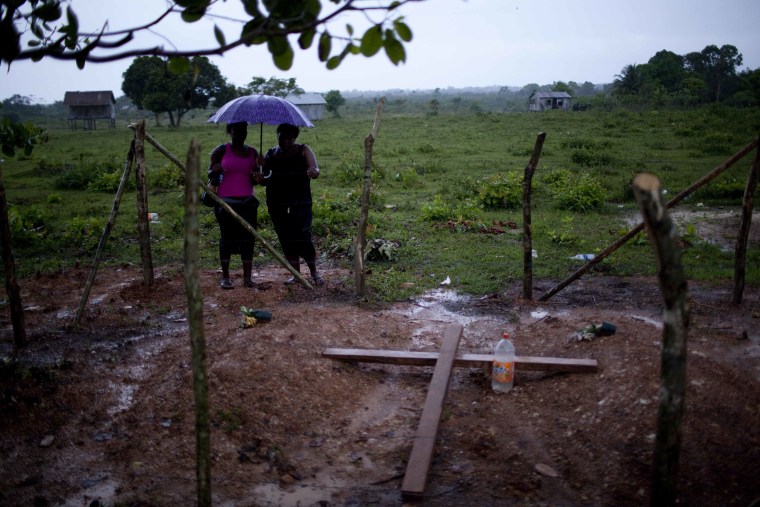Federal investigators issued a critical report on three deadly shootings in a U.S. drug operation in Honduras, saying officers and agency officials misrepresented facts on their use of deadly force, follow up investigations were flawed and U.S. officials misled Congress about what happened.
The report released Wednesday states that Drug Enforcement Administration and State Department officials “made inaccurate and incomplete” statements to Congress about the three separate shootings. The report was issued by the inspectors general for the Justice and State departments.

The report focused on three drug interdiction missions involving Honduran National Police and U.S. DEA officers on May 11, June 23 and July 3, 2012. They were part of Operation Anvil, a 90-day pilot project to disrupt drug trafficking flights from South America to Honduras. The DEA officers were members of the DEA's Foreign-deployed Advisory and Support Team.
The inspectors general also found problems with preparedness, training, ground support and coordination with Honduras for the mission. They were critical of how investigations were conducted, particularly for the May 11 deadly shooting that drew national attention and the attention of Congress as it became public that civilians were killed.
A written response from the DEA's compliance officer Mary B. Schafer was contained in the report. In it, Schafer said the agency agrees with the inspector general's recommendations and is implementing them.
DEA said in a statement Wednesday that it has made "significant and numerous changes" since the 2012 shootings. It also stated that the Foreign Advisory and Support Team that the agents involved in the shootings were part of no longer operates overseas and now helps with training.
In the May 11 incident at Ahuas, Honduras, four people were killed, including two pregnant women. Four others were injured when officers opened fire on a passenger boat that made contact with the vessel they were in following a cocaine seizure. Investigators said there was no credible evidence anyone from the passenger boat fired on the law officers. But DEA stuck to its narrative that passengers on the boat fired first. Survivors later said the boat was a water taxi.
One DEA officer and three Honduran officers were involved in the incident. DEA had said none of its officers fired weapons, but the investigators found a DEA officer in a helicopter had directed a Honduran gunner to fire on the passenger boat.
“From the beginning, DEA officials should have taken more seriously the allegations that the operation resulted in deaths of innocent civilians and should have ensured a thorough investigation of the incident,” the investigators said in the report.
Among some of the information DEA told Congress was that the May 11 operation was Honduran led and DEA was only in a support role. But the Justice Department inspectors general said the DEA officers had "substantial control" over conduct of the operation.
Carelessness or the failure to conduct a thorough investigation of the incident likely lead to DEA providing inaccurate and incomplete information to Congress and the Justice Department, the inspector generals said.
In the June 23 shooting, a DEA officer killed a man lying face down as he reached toward a handgun in his hip holster at Brus Laguna, Honduras. The officers were searching for drug suspects there but most had fled. DEA officials reported that the officer and Honduran police in a search for drug traffickers encountered an armed suspect who ignored orders to drop his weapon and a DEA officer shot him.
And in the July 3 shooting, DEA officers fired multiple rounds at a second pilot who ignored their commands and tried to re-enter a plane that had crashed landed.
The inspectors general said investigations of those incidents were more thorough and properly handled than the investigation for the May 11 deadly shooting, but also had problems, including the omission of important details.
The investigators were troubled that DEA accepted inconsistent and inaccurate statements from Honduran officers who participated in the mission and took no action in response.
“In addition, DEA officials told us that following the July 3 interdiction, a Honduran officer planted a gun into evidence and reported it as a weapon found at a shooting scene,” the report states.
“We believe these facts raised questions about the integrity of any evidence collected by (Honduran officers) during Operation Anvil” and DEA should have told prosecutors about the gun planting and the Honduran officers inaccurate reporting.
